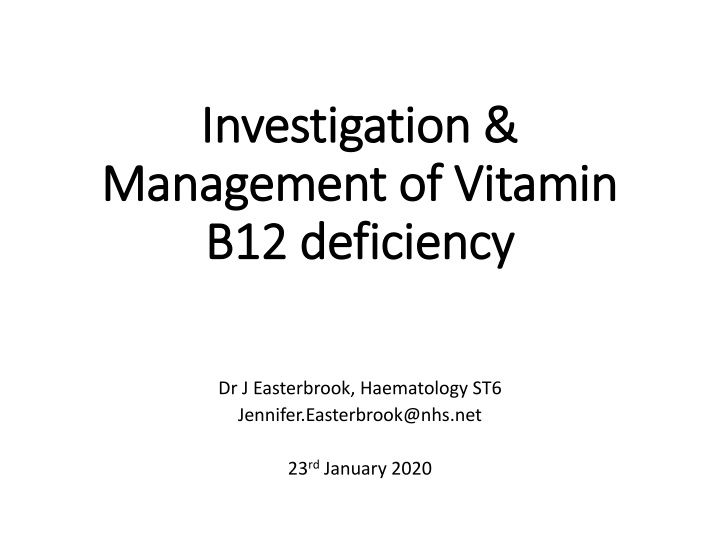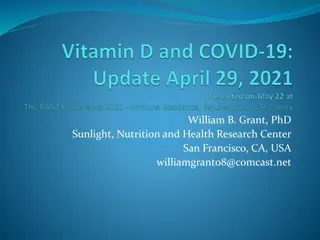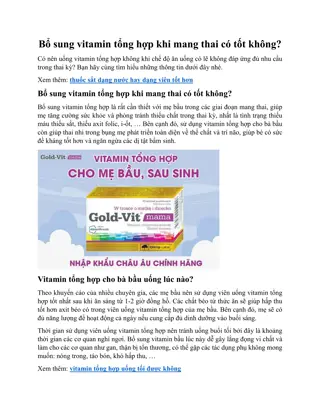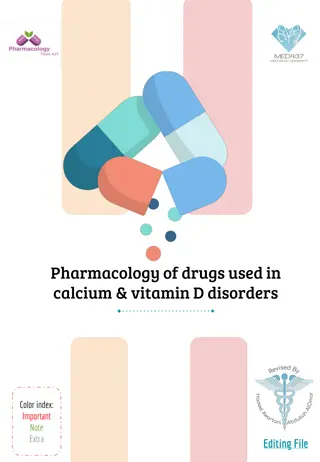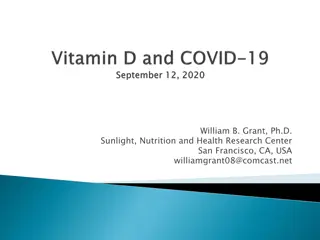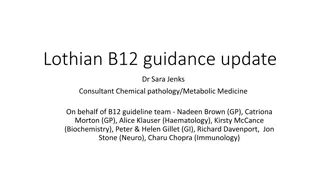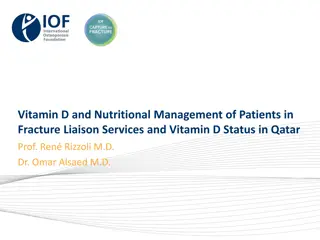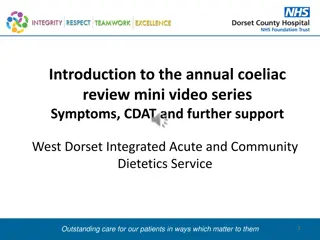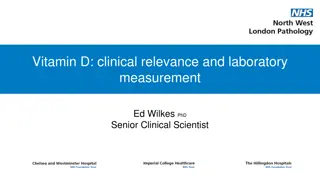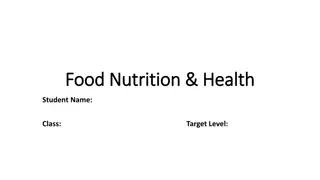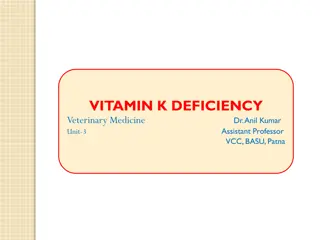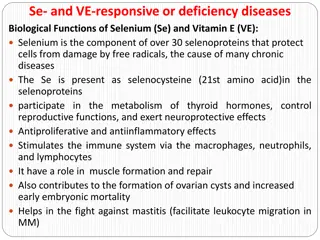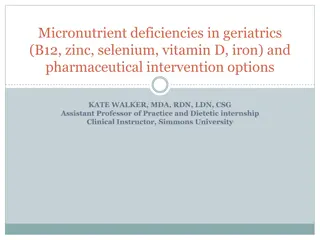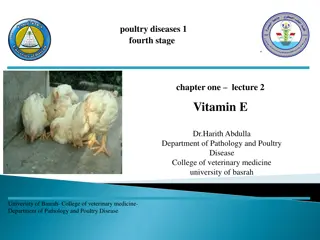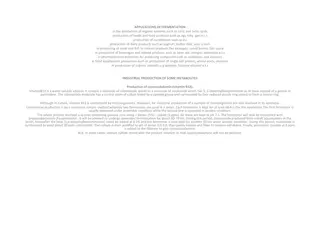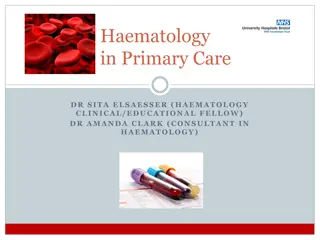Investigation and Management of Vitamin B12 Deficiency
Uncertainties exist in defining B12 deficiency with no gold standard test. Clinical presentation is crucial. New NHS Lothian guidelines aim for a pragmatic approach, comprehensive testing, and increased oral B12 use to ease burden on patients. Guidelines on diagnosing B12 levels, addressing macrocytosis and anemia, and managing B12 deficiency based on serum levels are detailed. Treatment options include dietary advice, B12 supplementation, and follow-up monitoring as per symptoms and B12 levels.
Download Presentation

Please find below an Image/Link to download the presentation.
The content on the website is provided AS IS for your information and personal use only. It may not be sold, licensed, or shared on other websites without obtaining consent from the author.If you encounter any issues during the download, it is possible that the publisher has removed the file from their server.
You are allowed to download the files provided on this website for personal or commercial use, subject to the condition that they are used lawfully. All files are the property of their respective owners.
The content on the website is provided AS IS for your information and personal use only. It may not be sold, licensed, or shared on other websites without obtaining consent from the author.
E N D
Presentation Transcript
Investigation & Investigation & Management of Vitamin Management of Vitamin B12 deficiency B12 deficiency Dr J Easterbrook, Haematology ST6 Jennifer.Easterbrook@nhs.net 23rdJanuary 2020
Uncertainties around B12. Uncertainties around B12 . There is no gold standard test to define B12 deficiency Currently measure serum cobalamin Definitive cut-off points for clinical & subclinical deficiency states not possible Lack of randomised controlled trials CLINICAL PRESENTATION is the most important!!
Why a new NHS Lothian guideline? Why a new NHS Lothian guideline? Pragmatic approach to B12 testing & management More comprehensive guidelines Increase use of oral vitamin B12 Reduce burden on patients and practice nurses Reduce referrals/ calls to haematology
Macrocytosis +/- Anaemia or Strong Clinical suspicion e.g. neurological symptoms TIREDNESS alone is NOT an indication for testing CHECK B12 NORMAL 180 ng/L BORDERLINE 145 - 180 ng/L LOW <145 ng/L If symptoms
LOW <145 ng/L BORDERLINE 145 - 180 ng/L NORMAL 180 ng/L Lab will check IFAB NO neurological symptoms NEUROLOGICAL symptoms Loading Loading IM hydroxocobalamin 1mg x3/wk for 2 wks IM hydroxocobalamin 1mg every 2nd day until no symptomatic improvement. Maintenance Dietary cause - Oral cyanocobalamin 50-150?g/day Recheck in 6-12 months. Maintenance IM hydroxocobalamin 1mg every 2-3 months for life if advised by specialist. Non-dietary cause - IM hydroxocobalamin 1mg every 3 months for life Seek specialist advice, if necessary
NORMAL 180 ng/L BORDERLINE 145 - 180 ng/L LOW <145 ng/L Asymptomatic Offer dietary advice & recheck in 3 months. Consider trial of cyanocobalamin 50-100?g daily Symptomatic IM B12 loading If IF negative, consider specialist advice for long term management plan Asymptomatic and B12 180ng/L Continue with dietary control, (+/- oral cyanocobalamin). B12 dropped to <145 ng/L
145-180 ng/L or 180 ng/L with strong clinical suspicion Check IFAB Positive TREAT AS LOW NEUROLOGICAL symptoms NO neurological symptoms
145-180 ng/L or 180 ng/L with strong clinical suspicion Check IFAB Positive Negative NEUROLOGICAL symptoms NO neurological symptoms TREAT AS LOW Continue with dietary control & oral cyanocobalamin - increased dose if appropriate. B12 monitoring in 6 months. Retest if symptomatic or 6 months after dose change. Load with IM B12 NEUROLOGICAL symptoms NO neurological symptoms Seek advice for long term plan
Medications/ Conditions that typically Medications/ Conditions that typically cause low B12 cause low B12 Antibiotics Anticonvulsants Colchicine GI surgery Metformin OCP/ HRT Pregnancy PPIs/H2 antagonists Vegan/Vegetarian diets
